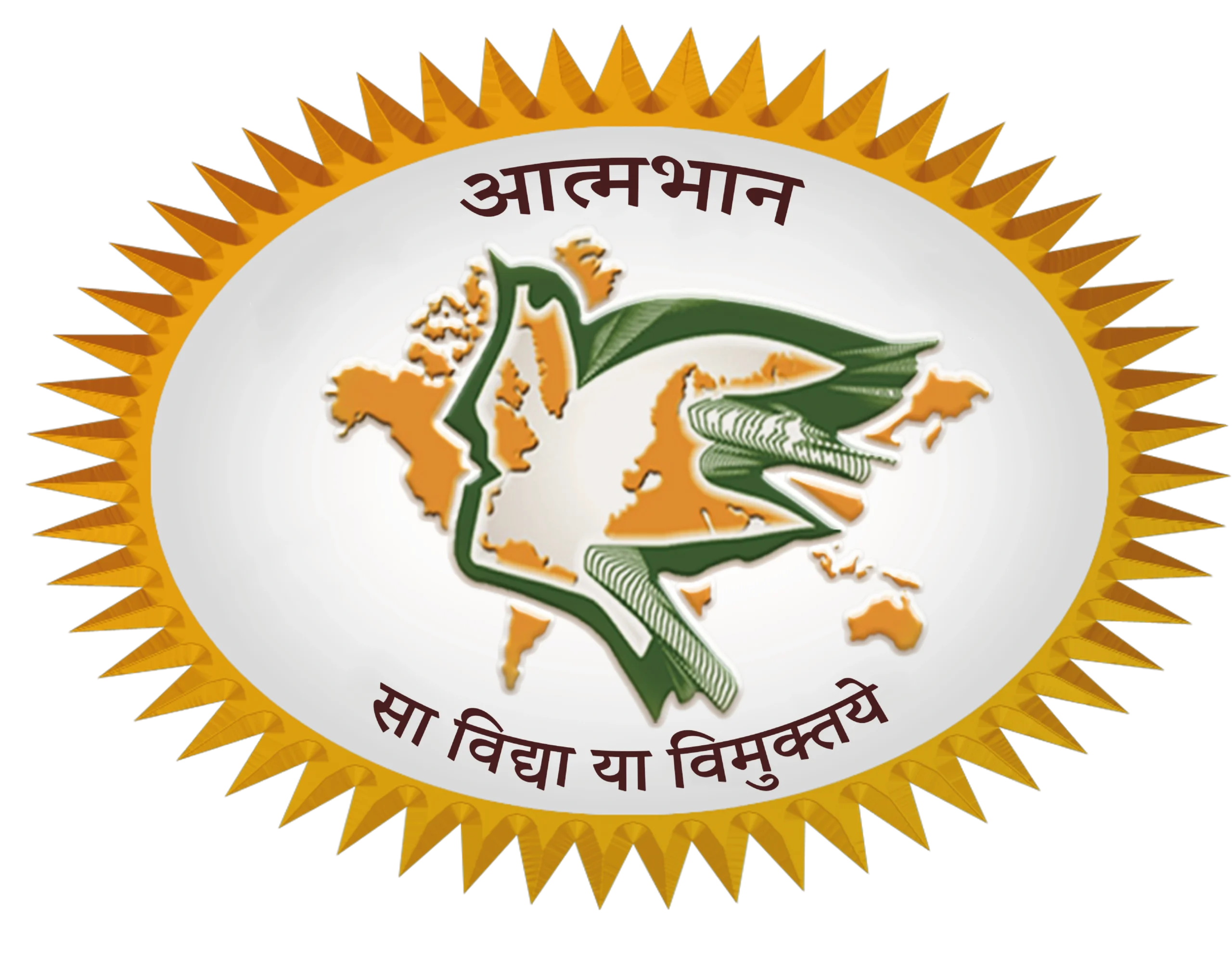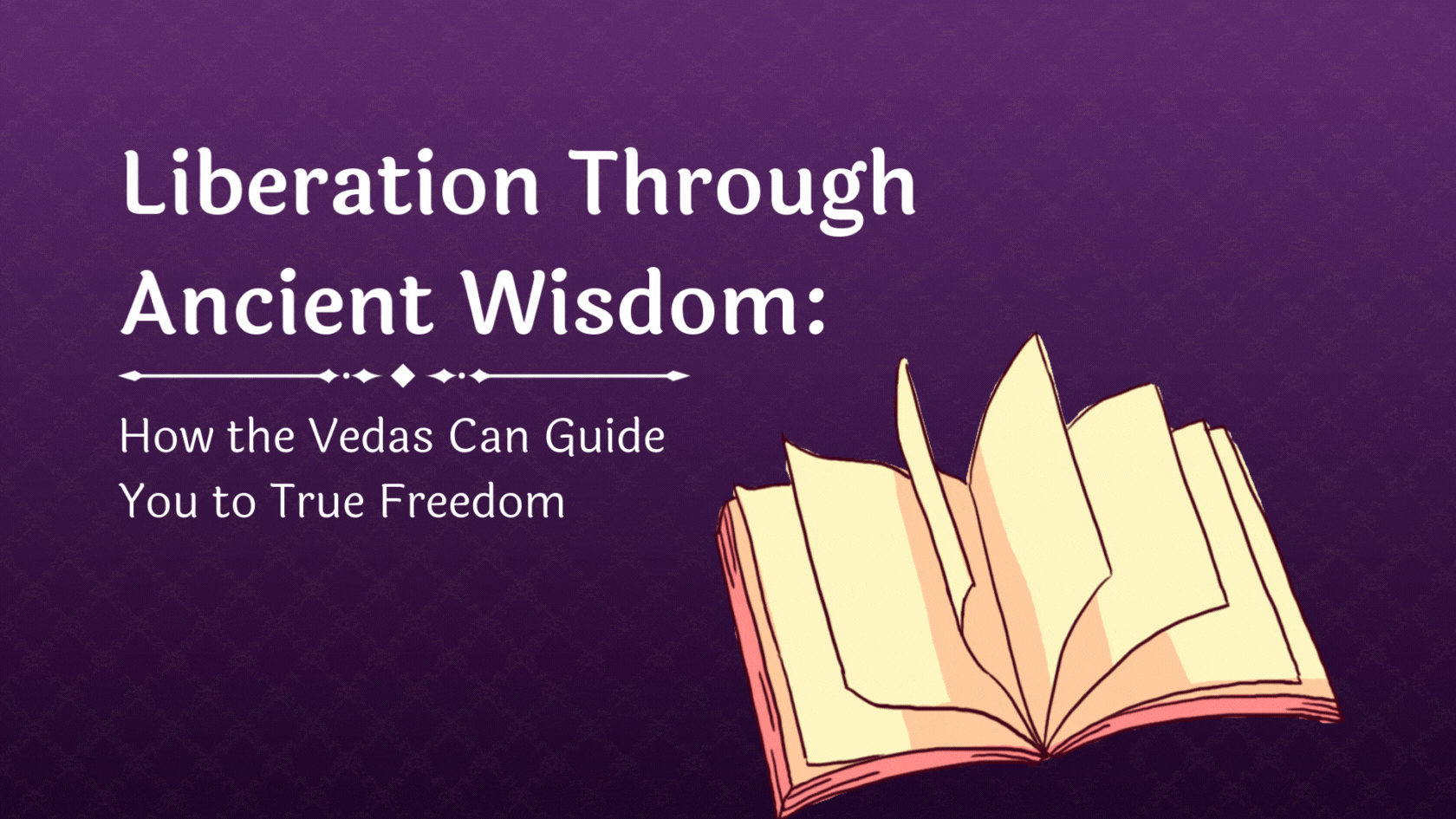Introduction: The Search for True Freedom
In our modern world, the quest for freedom and liberation is something we all feel at a deep level. But what does true freedom mean? How can we break free from the physical, mental, and emotional chains that bind us? The answer, I believe, lies in the ancient teachings of the Vedas.
For centuries, the Vedas have been regarded as the ultimate source of knowledge in Indian philosophy. These sacred texts contain the wisdom of the sages and reveal profound insights into the nature of life, consciousness, and spiritual freedom. Through this blog, I’ll share how the Vedas can guide you to liberation—true freedom from the illusions of the material world.

What Are the Vedas?
The Vedas are the oldest scriptures of Hinduism, dating back thousands of years. Composed in Sanskrit, these texts are a collection of hymns, philosophies, and instructions on various aspects of life, including spirituality, morality, and the nature of the universe. The Vedas cover everything from meditation to rituals, offering a path to both physical well-being and spiritual liberation.
How the Vedas Guide Us to Liberation
-
The Knowledge of the Self:
The Vedas emphasize the idea that true freedom comes from the knowledge of the Self—the realization that you are not the body or the mind but the eternal soul, known as the Atman. By understanding this, you break free from the illusions of the material world and begin your journey toward Moksha.
-
Unity with the Divine:
The Vedas teach that we are all interconnected with the Divine. Liberation comes from realizing this unity and seeing yourself as a part of the greater cosmic reality. Through meditation, you can access this state of unity and experience spiritual freedom.
-
Karma and Dharma:
According to the Vedas, liberation is achieved by living in harmony with Dharma—the cosmic law of right living. By following your righteous path and performing your duties without attachment, you free yourself from the cycle of birth and rebirth (Samsara). The Karma you accumulate affects your spiritual evolution, and through conscious actions, you can transcend the cycles of life.
The Role of Meditation in Vedic Wisdom
Meditation is central to the teachings of the Vedas. Through meditation (known as Dhyana), you cultivate awareness and begin to experience the Divine presence within. The Vedic sages believed that self-realization could only be achieved through deep, focused meditation that allows you to connect with your higher consciousness and ultimately attain liberation.
Why the Vedas Are Still Relevant Today
The wisdom of the Vedas transcends time and place. Their teachings are just as relevant today as they were thousands of years ago. In a world filled with distractions, the Vedas offer a timeless guide to understanding the nature of existence and finding inner peace.
By studying the Vedas and practicing the principles they teach, you can embark on your journey toward spiritual freedom. At Atmabhan, we integrate the teachings of the Vedas with guided meditation and spiritual practice to help you realize your highest potential.

Final Thoughts: Liberation Through Vedic Wisdom
The path to liberation through the Vedas is one of self-discovery, unity, and divine wisdom. Through meditation and self-awareness, the teachings of the Vedas guide us toward freedom from the cycle of suffering. I invite you to explore the profound insights that the Vedas offer and apply them to your life. The journey to Moksha begins with the realization that true freedom comes from within.


